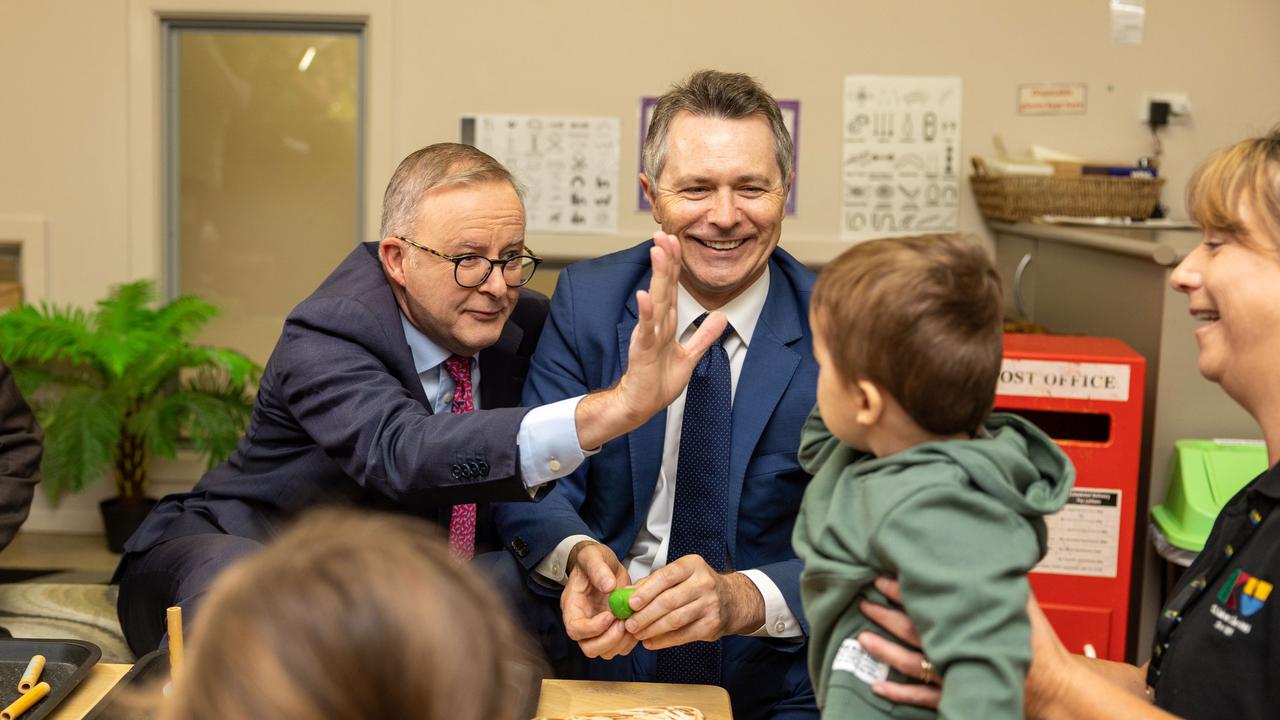Labor will bid to permanently increase its share of public school funding across the country, after striking a landmark deal with Western Australia.
In the biggest shake-up to school funding in more than a decade, WA will be the first state to be fully and “fairly” funded after the federal government signed a statement of intent to bolster education outcomes.
Against a backdrop of plummeting education outcomes across the country, Education Minister Jason Clare said he would work with all other states and territories to offer the same opportunity.
In Perth, Mr Clare confirmed the Commonwealth would boost its share of public funding in WA from 20 per cent of the School Resourcing Standard to to 22.5 per cent by 2026.
The SRS is an estimate of how much funding a school needs to meet its students educational needs, based on recommendations made by the Gonski review. At current, schools are only funded to 95 per cent of the standard.
In exchange for the additional $777.4m over four years, WA will increase its investment in the SRS from 75 per cent to 77.5 per cent to bring the total commitment to 100 per cent. In total, an additional $1.6bn will be allocated across the two governments to public schools.
The funding will be tied to practical reforms to radically improve teaching and student wellbeing, such as catch-up tutoring, a greater focus on student wellbeing, and greater support for teachers.
Mr Clare said the landmark deal would ensure every WA school student would have access to a better, fairer education.
“The Statement of Intent underlines our shared commitment to put all WA schools on a pathway to full and fair funding and invest in the reforms that will help children catch up, keep up and finish school,” he said.
“I look forward to working with all states and territories to properly fund our schools and build a better and fairer education system for all Australians.”
WA Education Minister Tony Buti said the agreement would create a stronger public education system.
“The increase in funding will drive real improvements in outcomes for all students, especially for students from low socio−economic backgrounds; regional, rural, and remote Australia; students with disability; First Nations students and students from a language background other than English,” Dr Buti said.
“Any reforms will focus on improving equity and excellence in schools, supporting the wellbeing of students and teachers, and providing a strong and sustainable workforce of teachers and non-teaching school staff.”
The most disadvantaged schools will start receiving the extra funding next year, while other schools will need to wait until 2026.
